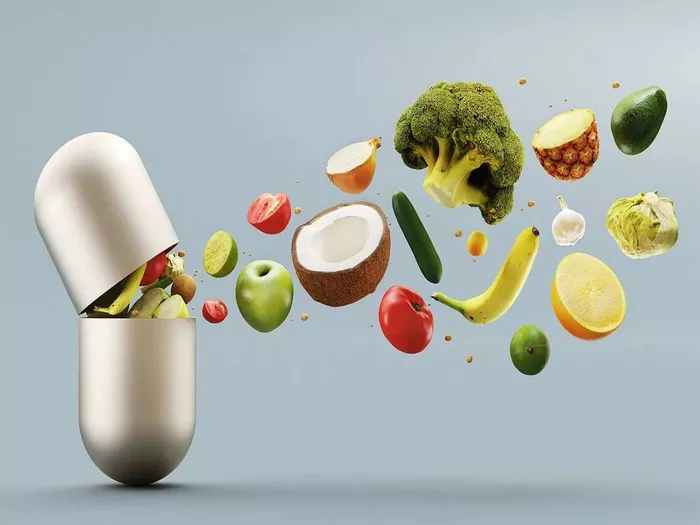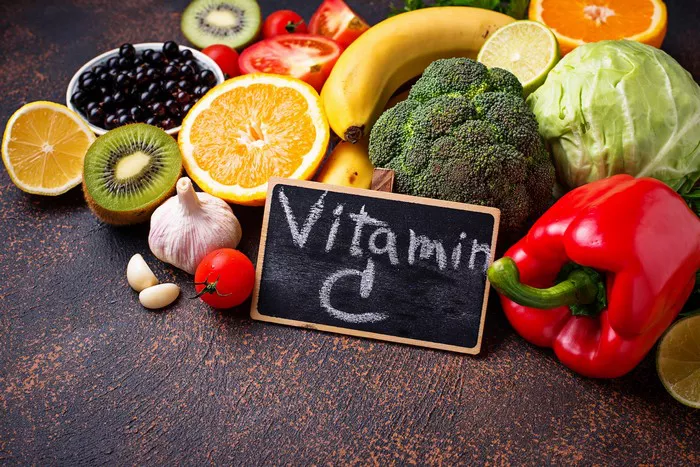Plant-based diets have gained popularity in recent years for their numerous health benefits, environmental sustainability, and ethical considerations. However, individuals following a vegan or vegetarian diet may need to pay special attention to certain nutrients, including vitamins, to ensure they meet their nutritional needs and maintain optimal health. In this comprehensive article, we’ll explore the essential vitamins for vegans and vegetarians, sources of these nutrients in plant-based foods, and strategies for optimizing nutrition on a plant-based diet.
Understanding Plant-Based Nutrition
Plant-based diets focus on consuming foods derived from plants, such as fruits, vegetables, whole grains, legumes, nuts, and seeds, while minimizing or eliminating animal products like meat, dairy, eggs, and honey. When well-planned, plant-based diets can provide all the nutrients needed for good health, including protein, carbohydrates, fats, fiber, vitamins, and minerals.
However, certain nutrients may be less abundant or less bioavailable in plant-based foods compared to animal products. Therefore, individuals following a vegan or vegetarian diet should be mindful of their intake of key nutrients, including vitamins, to prevent deficiencies and support overall well-being.
Essential Vitamins for Vegans and Vegetarians
While a well-rounded plant-based diet can provide most essential vitamins, there are a few key nutrients that may require special attention for individuals following a vegan or vegetarian lifestyle. These essential vitamins include:
Vitamin B12: Vitamin B12 is crucial for nerve function, DNA synthesis, and the formation of red blood cells. It is primarily found in animal products such as meat, fish, eggs, and dairy. Since plant-based foods are not reliable sources of vitamin B12, vegans and some vegetarians may need to supplement or consume fortified foods to ensure an adequate intake of this vitamin.
Vitamin D: Vitamin D plays a vital role in bone health, immune function, and mood regulation. While vitamin D is primarily synthesized in the skin through exposure to sunlight, few plant-based foods naturally contain vitamin D. Vegans and vegetarians may need to rely on fortified foods, supplements, or sun exposure to maintain adequate vitamin D levels, particularly in regions with limited sunlight.
Omega-3 Fatty Acids: Omega-3 fatty acids, particularly EPA (eicosapentaenoic acid) and DHA (docosahexaenoic acid), are essential for heart health, brain function, and inflammation regulation. While fatty fish is a rich source of EPA and DHA, plant-based sources such as flaxseeds, chia seeds, hemp seeds, walnuts, and algae-derived supplements can provide ALA (alpha-linolenic acid), a precursor to EPA and DHA. Vegans and vegetarians may consider incorporating these omega-3-rich foods into their diet or supplementing with algae-based omega-3 supplements.
Iron: Iron is essential for oxygen transport, energy production, and immune function. While plant-based foods such as legumes, tofu, fortified cereals, nuts, seeds, and leafy greens contain iron, the type of iron (non-heme iron) found in plant foods is less readily absorbed by the body compared to heme iron from animal products. To enhance iron absorption, vegans and vegetarians can consume iron-rich foods alongside sources of vitamin C, avoid consuming tea or coffee with meals, and consider cooking in cast-iron cookware.
Calcium: Calcium is vital for bone health, muscle function, and nerve transmission. While dairy products are a primary source of calcium in the Western diet, vegans and vegetarians can obtain calcium from fortified plant-based milks, tofu, fortified orange juice, leafy greens, almonds, and sesame seeds. Consuming a variety of calcium-rich foods can help ensure an adequate intake of this essential mineral.
Iodine: Iodine is essential for thyroid function and hormone regulation. While iodized salt is a common source of iodine in the diet, vegans and vegetarians who avoid or limit salt intake may be at risk of iodine deficiency. Plant-based sources of iodine include seaweed, iodine-fortified salt, and iodine-fortified foods such as bread and dairy alternatives. Individuals following a plant-based diet should ensure they consume adequate iodine-rich foods or consider supplementation if needed.
Strategies for Optimizing Nutrition on a Plant-Based Diet
Meeting nutrient needs on a plant-based diet requires careful planning and attention to food choices. Here are some strategies for optimizing nutrition on a plant-based diet:
Eat a Variety of Whole Foods: Consuming a diverse array of plant-based foods, including fruits, vegetables, whole grains, legumes, nuts, and seeds, can help ensure you get a wide range of essential vitamins and minerals.
Include Fortified Foods: Incorporate fortified foods such as plant-based milks, breakfast cereals, nutritional yeast, and meat alternatives into your diet to boost your intake of essential nutrients like vitamin B12, vitamin D, calcium, and iron.
Consider Supplementation: In some cases, supplementation may be necessary to meet specific nutrient needs, particularly for vitamin B12, vitamin D, omega-3 fatty acids, and iodine. Consult with a healthcare professional or registered dietitian to determine if supplementation is appropriate for you and to ensure you choose high-quality supplements.
Pay Attention to Food Pairings: Pairing iron-rich plant foods with sources of vitamin C, such as citrus fruits, bell peppers, or tomatoes, can enhance iron absorption. Similarly, consuming foods high in vitamin C alongside sources of non-heme iron can help maximize iron absorption.
Read Food Labels: When purchasing packaged or processed foods, read food labels carefully to identify fortified products and check for the presence of key nutrients such as vitamin B12, vitamin D, calcium, and iron.
Monitor Your Nutrient Intake: Use online tools or smartphone apps to track your nutrient intake and ensure you’re meeting your daily requirements for essential vitamins and minerals. Pay attention to any symptoms of nutrient deficiencies and consult with a healthcare professional if you have concerns about your nutritional status.
Conclusion: Nourishing Your Body with a Plant-Based Diet
A well-planned plant-based diet can provide all the essential vitamins and minerals needed for optimal health and well-being. By incorporating a variety of nutrient-rich plant foods into your meals, including fruits, vegetables, whole grains, legumes, nuts, and seeds, you can meet your nutritional needs and thrive on a vegan or vegetarian lifestyle.
However, it’s essential to pay special attention to certain nutrients that may be less abundant or less bioavailable in plant-based foods, such as vitamin B12, vitamin D, omega-3 fatty acids, iron, calcium, and iodine. By including fortified foods, considering supplementation if needed, and practicing mindful eating habits, you can ensure you’re getting all the essential nutrients your body needs to support overall health and vitality on a plant-based diet.
Remember to consult with a healthcare professional or registered dietitian if you have specific concerns about your nutrient intake or if you’re considering making significant changes to your diet. With proper planning and attention to nutritional needs, you can enjoy the many benefits of a plant-based lifestyle while nourishing your body and supporting long-term health and well-being.
[inline_related_posts title=”You Might Be Interested In” title_align=”left” style=”list” number=”6″ align=”none” ids=”7051,7048,7045″ by=”categories” orderby=”rand” order=”DESC” hide_thumb=”no” thumb_right=”no” views=”no” date=”yes” grid_columns=”2″ post_type=”” tax=””]

































